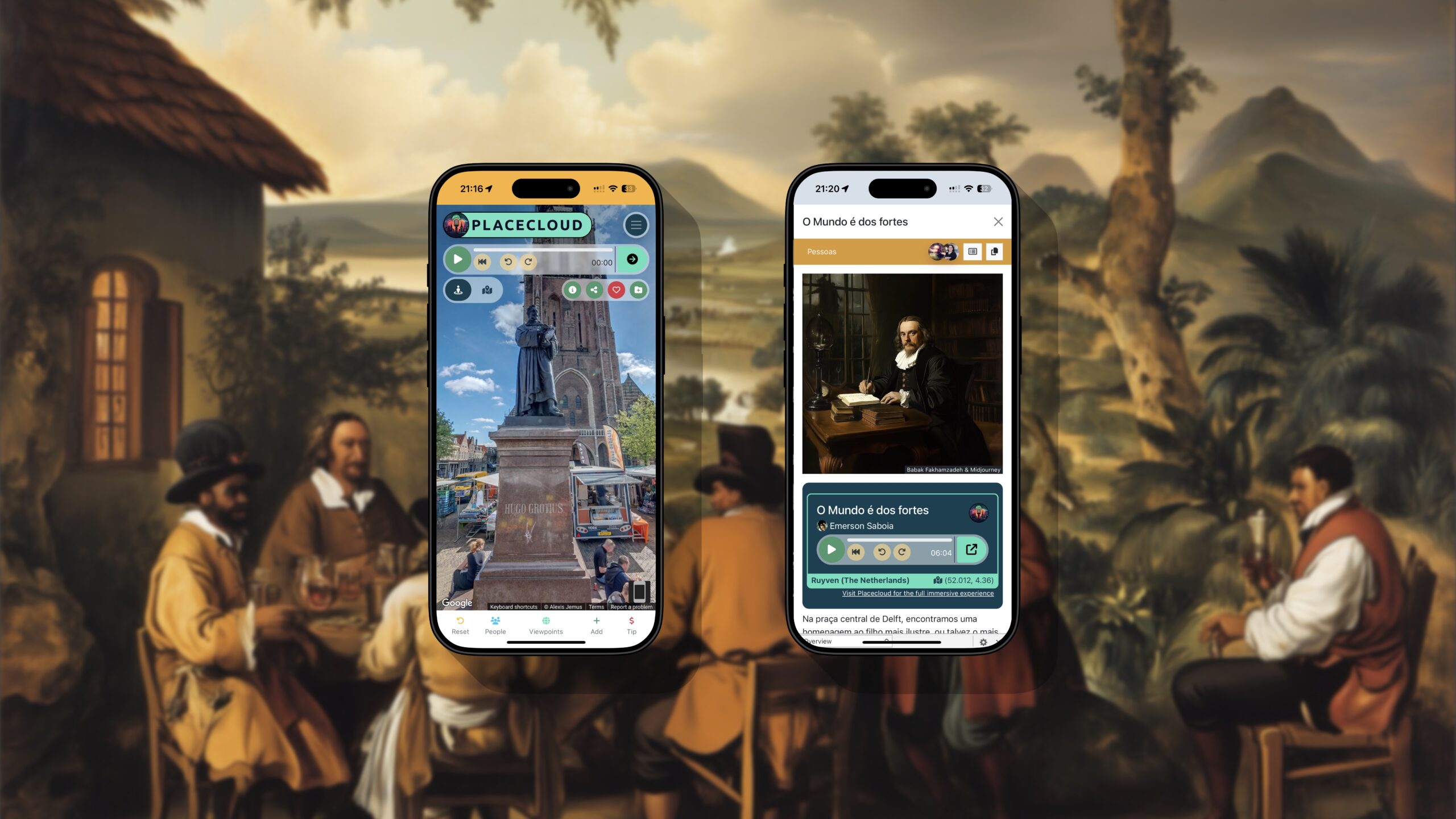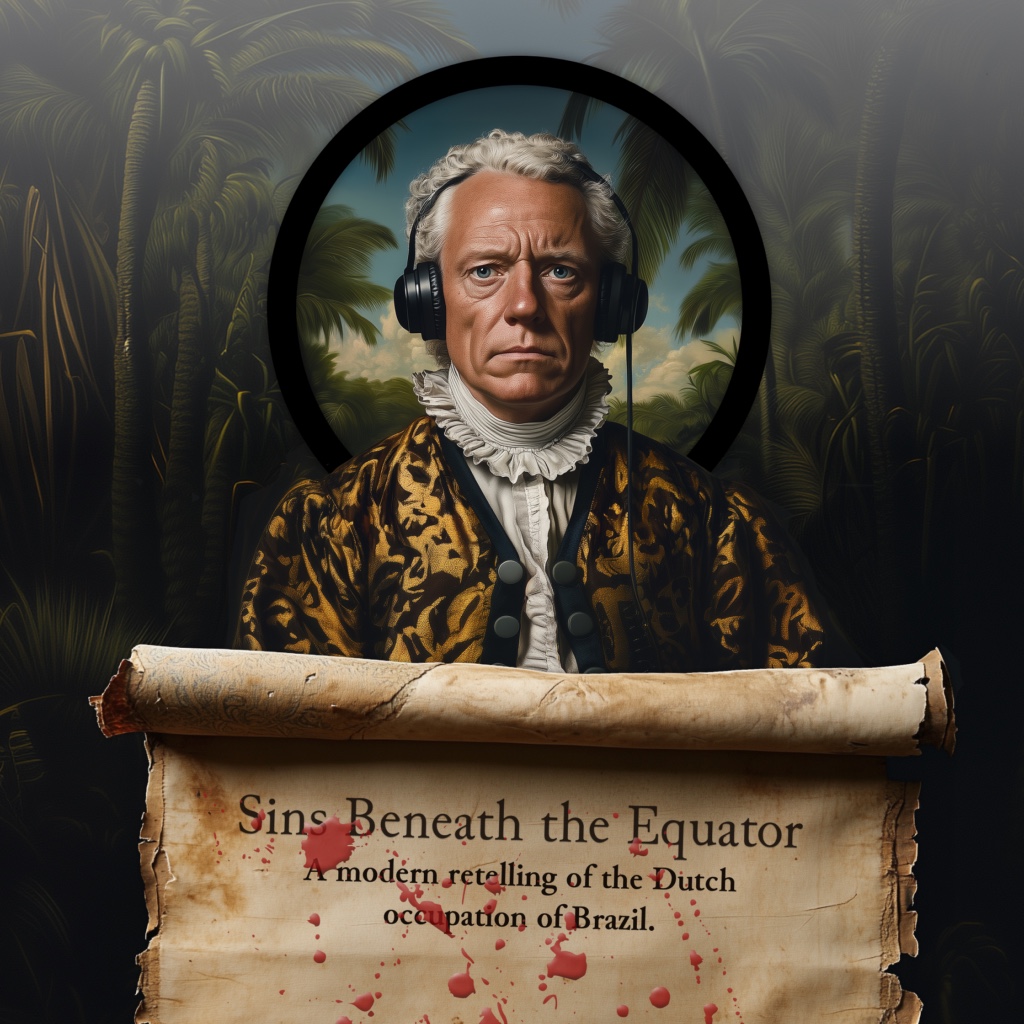Back in 2018, I visited the lovely town of Olinda in northern Brazil. It’s popular with tourists, mostly Brazilian, and when my wife and I were admiring the town’s facades, a man walked from around the corner and started talking to us, assuming we were Brazilian tourists.
He was a tour guide and wanted to sell his services, and one of the very first things he said was “Oh, if only the Dutch had stayed, Brazil would be so much better off, today”.
My jaw dropped.
Most people consider the French and Brits to be the biggest colonisers in history. In sheer numbers, this is also kind of true, but this perception also suffers from recency bias; Colonised African states, mostly colonised by France and the UK, only gained independence in the 20th century.
Meanwhile, few will not be aware that almost the whole of Latin America was colonised by either the Spanish or the Portuguese, though, there, most declarations of independence predated the African ones by some 150 years.
Exceptions remained, of course; Suriname was a Dutch colony into the 1970s, and French Guyana is still French soil. And Portugal kept control of its African possessions until the 1970s, too.
In large part, the Dutch colonial adventure was triggered by the war for independence from Spain in the 16th century, which itself had colonised the Low Countries, and also had annexed Portugal as part of the Iberian Union. Annoyed with the Dutch upstarts fighting for independence, the Spanish king blocked trade between the Portuguese colonies and Holland, which made the Dutch realise that, if they were to maintain, and improve, their economical position, they had to bring the conflict with Spain to the colonies, which then triggered the rise of the Dutch West- and East Indies Companies, and facilitated the start of the Dutch colonial adventure.
In Latin America, I already mentioned Suriname as a Dutch colony, while the Dutch Caribbean Islands are still Dutch territory.
The Dutch colonial elephant in the room is perhaps Indonesia, which suffered a brutal repression when fighting for independence in the 1940s and 1950s, but few know that Dutch New Guinea, now also part of Indonesia, remained part of the Dutch kingdom until as late as 1962.
Even fewer are aware that the Brazilian Northeast was Dutch Brazil for a period of 24 years, from 1630 to 1654, exploited for its wealth, and through the slave trade, which the Dutch had sought to take over from the Portuguese, occupying strategic positions on the African coast to do so.
It’s been often repeated, but perhaps to be clear, these chartered companies, that is, companies with shareholders, very much like modern businesses listed on a national stock exchange, experimented with early forms of capitalism, and, with little regulation, and operating in the periphery of empire, enforced ruthless capitalism on their distant colonial subjects, with the objective to generate profit at any externalised cost. This, in the very same way that, today, Big Tech (and others) outsource labour, and environmental destruction, to cheap overseas territories with lax laws, exactly because this makes the actual production process cheaper, at societal costs that are not carried by the companies doing the outsourcing.
Some things have progressed somewhat, as outright murder is, today, less often a tool in the capitalist playbook. Though not never, as, even in the late 20th and 21st century, the list of companies literally being responsible for the deaths of thousands is a long one.
But, in the 17th century, and up to the end of formal colonialism, this list was much longer, and the repression, and killings, much more ruthless. It was the Dutch who, in what is modern-day Indonesia, were responsible for, what some scholars consider, the only successful genocide in world history. The atrocities in Belgian Congo were so horrible, it’s difficult to believe humans can sink so low. And then there are the horrors of slavery, justified by the church.
All in the service of capitalism.
In Brazil, under the Dutch, the colony was for seven years administered by what many, particularly in Brazil, consider a ‘good coloniser’. John Maurice de Nassau-Siegen was related to William the Silent (known as William of Orange in The Netherlands), the one that triggered the independence war against the Spanish, and whose line eventually became the Dutch royal family. To confuse things, the same William the Silent had a son also called Maurice, but these were not the same person.
This Maurice, known at the time as “The Brazilian”, used his colonial profits to build the Mauritshuis, now a lovely museum in The Hague, right next to the Dutch parliament, and home to The Girl with the Pearl Earring, and View on Delft, both by the painter Johannes Vermeer, from the nearby town of Delft.
The trope of ‘good coloniser’ is quite common in Brazil, particularly in the northeast. Maurice certainly was a better administrator than many; he was known to balance the needs of a range of parties, regularly favouring the Portuguese landowners over the company he was there to represent. And he brought artists, engineers, an astronomer, and others to the colony, responsible for repercussions that literally reverberate down centuries. One of the painters, Albert Eckhout, now remembered in Brazil through an excellent beer, was partially responsible for the 18th century pineapple fever in Europe.
Maurice’s more balanced approach eventually cost him his job, as he was simply not considered ruthless enough. Perhaps he wasn’t enough CEO, and too much prime minister. But, he was not Brazil in name of the state, but to run a business. Still, also under Maurice, the objective was always to make profit. Maurice might simply have realised that, in order to make profit more sustainably, he needed to keep more groups of people happy; at the expense of short term profits, attempt a more long term sustainability. Perhaps. As it also seems that part of his reasons were to climb up the social ladder, comparing his own achievements with those of his successful family in The Netherlands.
But, Maurice didn’t feel the need to keep quite everyone happy. The African slaves, the trade of which Maurice managed to take control of, were used extensively in his city building projects. And, though ‘religious freedom’ is often cited as a central feature of his administration, and, true, the religious freedom in Dutch Brazil resembled more the relative religious freedom in The Netherlands at the same time, in the colony, this was very much born out of the perceived economic advantage it brought. Specifically, the jewish community was essential for keeping the economy going, as they were often the only ones who spoke both Dutch and Portuguese, and so were necessary to mediate between the administrators and the local business leaders.
Meanwhile, slaves were forced to convert, and the indigenous were pushed to do so. Catholics, and the Jews, were only allowed to practice behind closed doors.
In late 2023, I was made aware of an Open Call that asked for proposals to highlight the hidden histories of Dutch colonialism. I grew up in Holland, and have lived in Brazil since 2014, and had the above-mentioned experience in Olinda a few years after arriving. I’m from Iran, which had no meaningful colonial interaction with the Dutch, but suffered, as late as 1953, a significant political setback, where British and American conspiracies and covert action resulted in a political coup, and the removal of an elected prime minister.
It’s likely that, if the US and UK had not interfered in Iranian politics at that time, the 1979 revolution would not have happened, and, notwithstanding other post-colonial intervention in the region, the Middle East could have been in a completely different place, today.
Suffice to say, I have a rather different view of European colonialism compared to most Dutchies.
In other words, I felt this Open Call was the perfect opportunity to look back at the Dutch colonial past in Brazil, and to identify it for what it was: ruthless profit seeking at the cost of the periphery, for the benefit of the center.
Together with the investigate journalism agency Marco Zero, based in Recife, which was the capital of Dutch Brazil, and the exhibition space Nest in The Hague, we set out to create 100 location-based short podcasts, using the Placecloud platform as the channel for distribution, which is managed by us at walk · listen · create.
The project is called Sins Beneath the Equator, and we soft-launched on December 20 last year, the 345th anniversary of the death of Maurice de Nassau, the ‘good coloniser’. We launched with 26 of these podcasts, and, until roughly the end of February, we will release half a dozen or so new podcasts every week. As I write this, 42 are available, primarily covering Recife, and the Brazilian state of Pernambuco, but also covering places in North America, Europe, Africa, and even Asia. The latter specifically dealing with that successful genocide I mentioned earlier.
All material is available in three languages, Portuguese, English, and Dutch. All podcasts come with full transcripts and, when experienced on Placecloud, integrate Google Street View into the experience. You can go on a walking tour of Recife, and listen to the material, or you can enjoy the audio at home, augmented through Google Street View. You will be able see what you would see if you’d be in the places we talk about, in person.
Perhaps you also have a story to tell that connects to the Dutch occupation of the Brazilian northeast. If you do, we want to hear from you. Send me a message to start a discussion.
We live in precarious times. With the US, Trump and his supporters at the forefront, American companies (but not only them) out in full force, the needs and will of the majority of the population of the world are being subverted by those with money and power, in the service of hyper capitalism, and making money for the ruthless few.
This excessive exploitation is not new, though the consequences are, today, on a different level. We have seen this exploitation before, notably during hundreds of years of colonisation.
Perhaps the biggest difference is that, today, the center is now also suffering the consequences of excessive exploitation, whereas, before, this was mostly centred on the periphery. There is simply less and less periphery to exploit.
There are ways to push back against this perverse behaviour. Sadly, many of them involve major conflict; as the privileged will not give up their privileges voluntarily. But, whichever way the dice will roll, change starts with educating ourselves, and, I hope, that Sins Beneath the Equator will be able to put today’s exploitation in a bit of historical context, and work towards consigning the myth of the ‘good coloniser’, in a way a euphemism for ‘good capitalist’, to the dustbin of history.
APA style reference
| Brazil |
| featured |
| Recife |
| The Netherlands |



